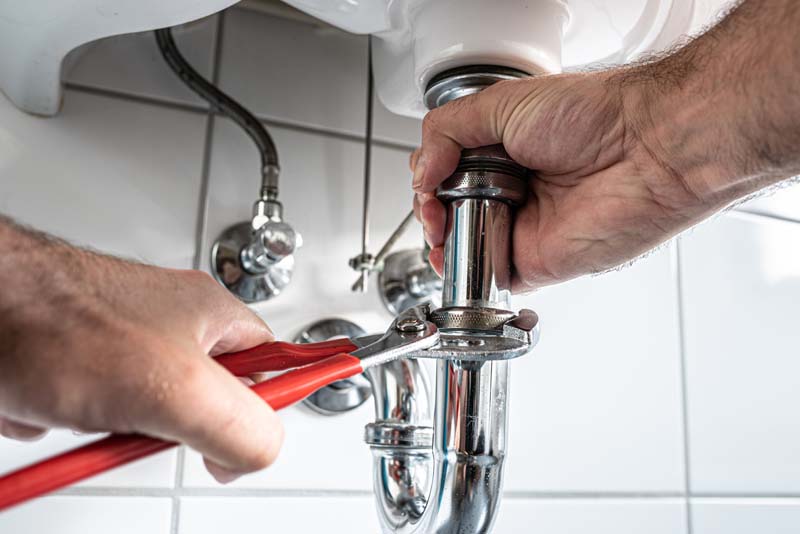Each property owner is aware because plumbing problems can strike at the most inconvenient times. From clogged drains to burst pipes, these challenges can quickly turn into costly nightmares if not addressed properly. However, with a small understanding and a few DIY skills, numerous common plumbing challenges can be handled with simplicity. In this piece, we will explore essential plumbing hacks that all homeowner ought to be aware of to keep their plumbing running smoothly.
Grasping the fundamentals of plumbing and being prepared for emergencies can help you save you time and money. Regardless of whether you're facing the aftermath of a holiday plumbing disaster or looking to upgrade your fixtures during the summer, having the appropriate tools and tips at your ready makes all the difference. We will include everything from how to prevent clogged drains before they happen to spotting the signs of a hidden leak, making sure you are equipped to maintain your plumbing effectively.
Typical Plumbing Issues and Solutions
One of the most common plumbing problems homeowners encounter is a blocked drain. Kitchen basins and bathroom fittings often become clogged due to a buildup of grease, hair, and soap residue. To address this issue, start by using a plunger to try to dislodge the obstruction. If that doesn’t work, a combination of baking soda and acetic acid can help break down the debris. Consistently cleaning your drains and using drain guards can stop clogs before they start.

Another typical issue is low water pressure, which can be frustrating when trying to wash dishes or take a bath. This issue may be due to mineral accumulation in the tubes or a faulty pressure regulator. To troubleshoot, check your faucet aerators and showerheads for any debris and wash them. If the problem persists, it may be time to inspect your plumbing network for drips or consider the possibility of needing a pressure booster.
Lastly, hidden leaks can lead to significant water damage and high water bills. Watch for indicators such as wet spots on surfaces or roofs, mold growth, or a unexpected increase in your water bill without explanation. To locate hidden drips, inspect your home’s water meter and monitor it for variations while all water flow is stopped. If you think a drip and cannot detect it, it’s wise to call a certified plumber to carry out a thorough inspection.
Crucial Care Hints for Property Owners
Regular maintenance is important to stopping plumbing issues in your house. https://zenwriting.net/lampmakeup2/pipe-nightmares-authentic-stories-out-of-the-job-site of the most responsibilities is to check your pipes and fittings for noticeable signs of damage or leaks. Look over areas under basins and around appliances regularly, as these are common places for problems to occur. Additionally, ensure that your water pressure is at a healthy level; excessively high pressure can lead to drips or burst pipes.
Another essential maintenance step is to service your hot water system. Cleaning the tank at least one time a year can assist remove sediment deposits, which improves efficiency and extends its lifespan. It is also advisable to check signs of wear, such as corrosion or leaks, which may indicate it's necessary for repair or replacement. Be sure to adhere to the manufacturer’s instructions for care to avoid any accidents.
Blocked drains can lead to irritating plumbing disasters if not addressed in a timely manner. To prevent clogs in the first place, consider using strainers in basins and tubs to trap hair and food particles. Consistently pouring a mixture of acetic acid and sodium bicarbonate down your drains can help dissolve buildup and keep your pipes flowing efficiently. Taking these proactive measures can save you from expensive repairs down the line.
Critical Plumbing Issues and Avoidance
When unexpected plumbing emergencies occur, such as burst pipes or significant leaks, knowing how to respond quickly can mitigate extensive damage to your home. Your initial step should be to locate and shut off the main water line to minimize water leakage and likely flooding. Ensuring an emergency cut-off valve accessible and knowing how to use it can save you from a catastrophic situation. Additionally, carrying a basic toolkit with necessary tools like screwdrivers, spanners, and plumber's tape can come in handy until a professional arrives.
Prevention is crucial to avoiding many frequent plumbing emergencies. Regular inspections, such as checking your water heater for sediment buildup or inspecting pipes for signs of wear, can help identify possible issues before they escalate. Draining your water heater from time to time and making sure your plumbing system is winter-ready by insulating pipes can also stop future emergency situations. Recognizing the early warning signs, like strange noises or slow drains, allows homeowners to act quickly and stop larger problems.
While many homeowners may be tempted to tackle plumbing issues independently, understanding when to contact a licensed plumber is essential. If you face persistent low water pressure, recurring leaks, or issues beyond small repairs, it’s wise to consult a qualified plumber who can fix the problem properly. Trusting a licensed expert ensures that the work is not only done properly but may also avert further complications down the line.
